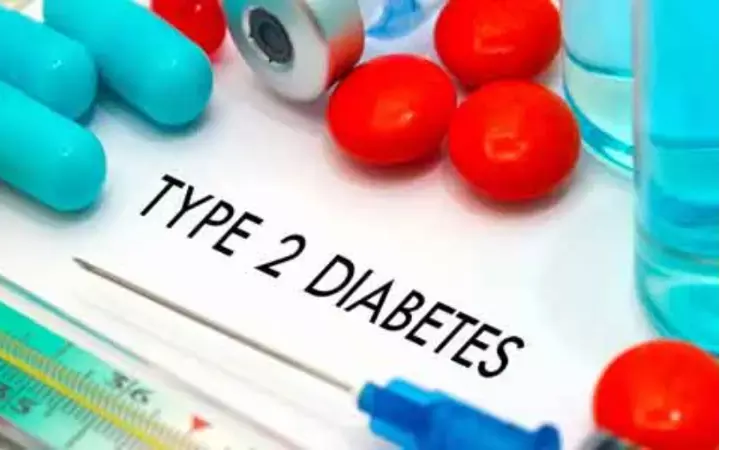- Home
- Medical news & Guidelines
- Anesthesiology
- Cardiology and CTVS
- Critical Care
- Dentistry
- Dermatology
- Diabetes and Endocrinology
- ENT
- Gastroenterology
- Medicine
- Nephrology
- Neurology
- Obstretics-Gynaecology
- Oncology
- Ophthalmology
- Orthopaedics
- Pediatrics-Neonatology
- Psychiatry
- Pulmonology
- Radiology
- Surgery
- Urology
- Laboratory Medicine
- Diet
- Nursing
- Paramedical
- Physiotherapy
- Health news
- Fact Check
- Bone Health Fact Check
- Brain Health Fact Check
- Cancer Related Fact Check
- Child Care Fact Check
- Dental and oral health fact check
- Diabetes and metabolic health fact check
- Diet and Nutrition Fact Check
- Eye and ENT Care Fact Check
- Fitness fact check
- Gut health fact check
- Heart health fact check
- Kidney health fact check
- Medical education fact check
- Men's health fact check
- Respiratory fact check
- Skin and hair care fact check
- Vaccine and Immunization fact check
- Women's health fact check
- AYUSH
- State News
- Andaman and Nicobar Islands
- Andhra Pradesh
- Arunachal Pradesh
- Assam
- Bihar
- Chandigarh
- Chattisgarh
- Dadra and Nagar Haveli
- Daman and Diu
- Delhi
- Goa
- Gujarat
- Haryana
- Himachal Pradesh
- Jammu & Kashmir
- Jharkhand
- Karnataka
- Kerala
- Ladakh
- Lakshadweep
- Madhya Pradesh
- Maharashtra
- Manipur
- Meghalaya
- Mizoram
- Nagaland
- Odisha
- Puducherry
- Punjab
- Rajasthan
- Sikkim
- Tamil Nadu
- Telangana
- Tripura
- Uttar Pradesh
- Uttrakhand
- West Bengal
- Medical Education
- Industry
Rheumatoid arthritis patients at lower risk of type 2 diabetes: Study

WILEY - Researchers have found in a recent analysis of a US commercial insurance database that adults with rheumatoid arthritis had a lower risk of developing type 2 diabetes than other individuals, including those with other types of arthritis.
Experts aren't sure why these two diseases are linked. Earlier studies have shown that rheumatoid Arthritis patients may be at higher risk of developing type 1 diabetes.
The researchers examined risk of incident type 2 diabetes mellitus (T2DM) among rheumatoid arthritis patients versus four different comparison cohorts.
The analysis, which is published in Arthritis Care & Research, compared adults with rheumatoid arthritis with four other groups: individuals from the general population without rheumatoid arthritis, individuals with hypertension, individuals with osteoarthritis, and individuals with psoriatic arthritis. A total of 449,327 people were included.
During the median of 1.6 years of follow-up, the rate of type 2 diabetes development was lowest in the rheumatoid arthritis group (7.0 per 1,000 people per year) and highest (12.3 per 1,000 people per year) in the hypertension group. After adjustments, rheumatoid arthritis was associated with a 24% to 35% lower risk of developing type 2 diabetes compared with the four other groups.
"While systemic inflammation in rheumatoid arthritis increases the risk of cardiovascular disease, our findings unexpectedly show that having rheumatoid arthritis itself does not confer an increased risk of type 2 diabetes compared with four different comparator groups," said senior author Seoyoung C. Kim, MD, ScD, MSCE, of Harvard Medical School. "Since all rheumatoid arthritis patients included in our study were treated with at least one disease-modifying antirheumatic drug, our study is unable to test the association between no treatment or undertreatment for rheumatoid arthritis and risk of type 2 diabetes."
In this large population‐based cohort study, rheumatoid arthritis patients had a lower rate of incident T2DM compared to the general non‐rheumatoid arthritis, hypertension, osteoarthritis, and Psoriatic Arthritis cohorts.
for further references log on to:
Dr Kamal Kant Kohli-MBBS, DTCD- a chest specialist with more than 30 years of practice and a flair for writing clinical articles, Dr Kamal Kant Kohli joined Medical Dialogues as a Chief Editor of Medical News. Besides writing articles, as an editor, he proofreads and verifies all the medical content published on Medical Dialogues including those coming from journals, studies,medical conferences,guidelines etc. Email: drkohli@medicaldialogues.in. Contact no. 011-43720751


